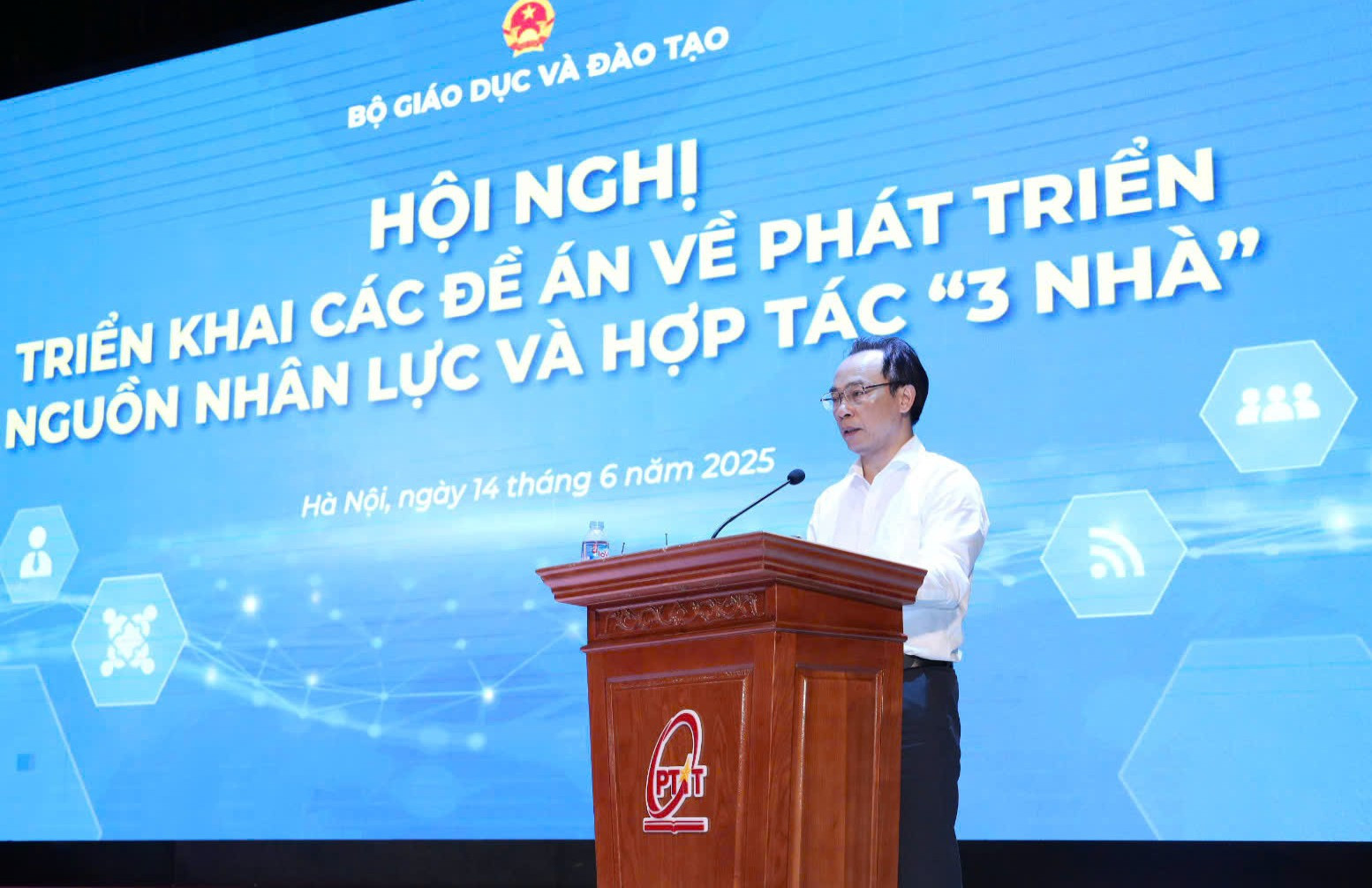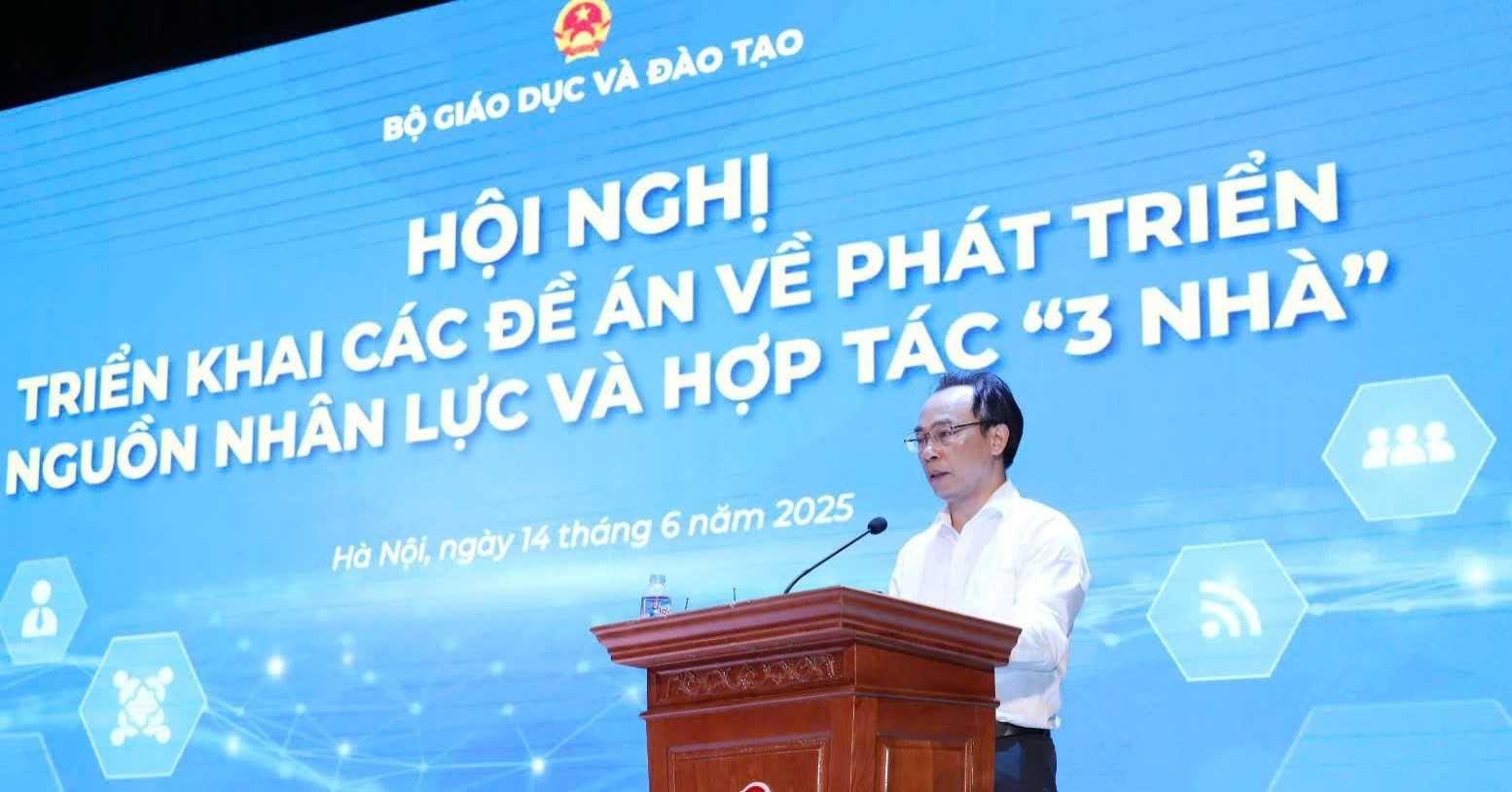
The news was announced on June 14 at a conference on human resources development projects and cooperation between the State, universities and businesses.
This is a key task to implement the plan approved by the Prime Minister to develop high-tech human resources during the period 2025-2035, with a vision until 2045.
Dang Van Huan, deputy director of the Higher Education Department, said that the ministry was a full plan to execute the initiative, including the deployment of talent training programs.
In June 2025, the MOET will establish and publish standards for the talent training program, in parallel with regulations to select programs and institutions for training. In July 2025, the ministry will provide advice to universities to implement these programs.
The deputy minister of the MOET, Hoang Minh, noted that Vietnam will not be able to develop science and technology and make revolutionary progress in science, technology and innovation if it does not have high quality talented human resources.
STEM graduates can be used in various industries, including semiconductors, high-speed rails and nuclear energy.
“These areas require not only specialized human resources but also many STEM human resources,” said sound. “Even when we need human resources to develop a certain industrial sector, we can easily recycle STEM graduates to be professionals in this sector. The training of high -tech human resources is extremely important because they can cover many areas. ”
Asked about the universities' choice criteria for the talent training program, its said that only high -level schools with high capacity can participate in the programs.
“The renowned training files will be selected thanks to a competitive process. There will be 100 talent training programs for engineers and master's degrees and 100 for biomedical fields, with priority on digital technology, AI and biotechnology.
He said the MOET has established specific tasks to orient students studying STEM, which requires the participation of universities.
“During the completion of career advice, we must advise students to study the Stem majors.
The Deputy Minister Nguyen Van Phuc stressed the importance of cooperation of the three parties – the government, schools and businesses – to maximize resources, align training and research on labor market needs, and improve national competitiveness.
Universities are not only training places, but are also concentrated for knowledge creation, scientific research and technology transfer, and must be more closely linked to businesses and invest more to meet practical and market needs.
Companies are not only places that employ workers trained by schools, but also market research results and are the most important partners in schools.
“This relationship does not stop at the training of human resources, but must develop in research activities, the application, the transfer of technology, the marketing of research products, and in particular to the training of cooperation, co -entreprises, partnerships, etc.”, said Phuc.
The high-tech human resources development plan in 2025-2035 is set specific objectives by 2030, in particular by quickly increasing the extent of training in Stem majors, in particular in fundamental sciences, digital technology, AI and biotechnology, in addition to other objectives:
+ The proportion of people who study STEM majors will reach 35% at each level of training, at least 2.5% of which will be in basic sciences and 18% in major technology majors.
+ The number of people who follow training and master's programs will represent at least 10% and the number of people who study doctoral training programs will represent at least 1% of the total STEM training scale.
+ The number of people graduated from training programs on information and communication technologies will be 80,000 people / year, of which at least 10% will be awarded as an engineer, master's degree or doctorate.
+ The number of people graduated from training programs specialized in AI will be 8,000 people / year, of which at least 20% will be allocated to the engineer, master's degree or doctorate; 100% of baccalaureate, engineer and mastery training programs in STEM majors will be integrated into data analysis and AI skills.
+ The number of people graduated from specialized training programs in biology, biotechnology and biomedicine will be 5,000 people / year, of which at least 20% will be rewarded in engineering, master's or doctoral.
Thanh Hung


